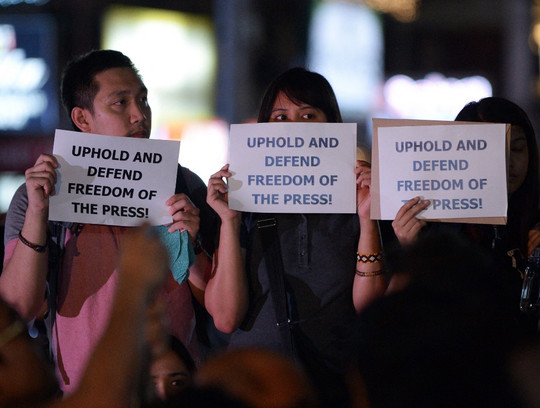The saddest part of the Gerry Ortega murder case is that, 11 years after his assassination, his family remains deprived of the justice they deserve. That, and the fact that despite a heap of evidence pointing to the man accused of masterminding Gerry’s death – former provincial governor Joel Reyes – the trial of the latter has hardly moved forward.
I will never forget the day Gerry was shot in the back of his head by a hired gunman from a faraway province of our country, the Philippines. We were to have our regular coffee chat that afternoon; I was to show him some research I had done on the corruption case that he was tackling on his radio programme. He wanted to discuss with me a plan to launch a petition against mining in our province, Palawan. Environmental protection was his other favourite commentary subject as he took on big business and the politicians behind them.
His primetime radio programme, ‘Ramatak’ (which translates as “an outpouring of many issues”), was intense and unforgiving to those he perceived as corrupt. For that he had made a lot of enemies, as had many journalists in the provinces.
When I arrived at the scene of the crime and saw his lifeless body lying on a pool of blood on the floor of an untidy used-clothes shop, I was overwhelmed with grief. But that was only momentary as my sadness was gradually taken over by fear and anxiety: I imagined myself lying on the floor with him. For I knew what got him killed.
Media killings in the Philippines have stifled journalism, particularly for independent media. Like Gerry Ortega, they are the ones most exposed to the violent culture of politics that pervades the country. This is the toxic air we have been breathing for years, but during the past six years alone – when President Rodrigo Duterte has been in power – at least 22 journalists have been killed nationwide, in addition to several hundred political activists murdered or wrongfully detained, according to the National Union of Journalists of the Philippines.
Here is how impunity thrives in the Philippines: hardly any cases of media killing have been successfully prosecuted in court, not even when the evidence is as overwhelming as that of Gerry’s case. Each case of journalist-killing is unique but they share a common political landscape, one characterised by violence and a weak judicial system.
By exploiting the many flaws in the country’s judicial system, Reyes to this day remains free, eluding a fresh arrest warrant issued against him by a Palawan court. The case has dragged on this long mainly because at the onset of the investigation he fled the country and hid overseas for about four years until he was captured in Thailand.
The motive for Gerry’s murder was clear enough: he was killed because of his exposé on local political corruption. This had been established not only by police investigation but even by a Senate ‘blue ribbon’ inquiry. Yet to this day, the judicial process has not had a chance to examine the evidence.
The continuing tragedy here is the perpetuation of the murderous political system that has stifled the media, particularly independent rural and community media.
A long-time local kingpin, Reyes recently made a daring bid for political comeback after being in detention for several years, filing his candidacy for governor in the May 2022 local elections. Whatever the outcome of the elections, though, impunity will remain as manifested in the Gerry Ortega murder and the many other cases like it.
Redempto D. Anda is a journalist in Palawan, the Philippines. He is a correspondent for the Philippine Daily Inquirer and editor-in-chief of Palawan News.

